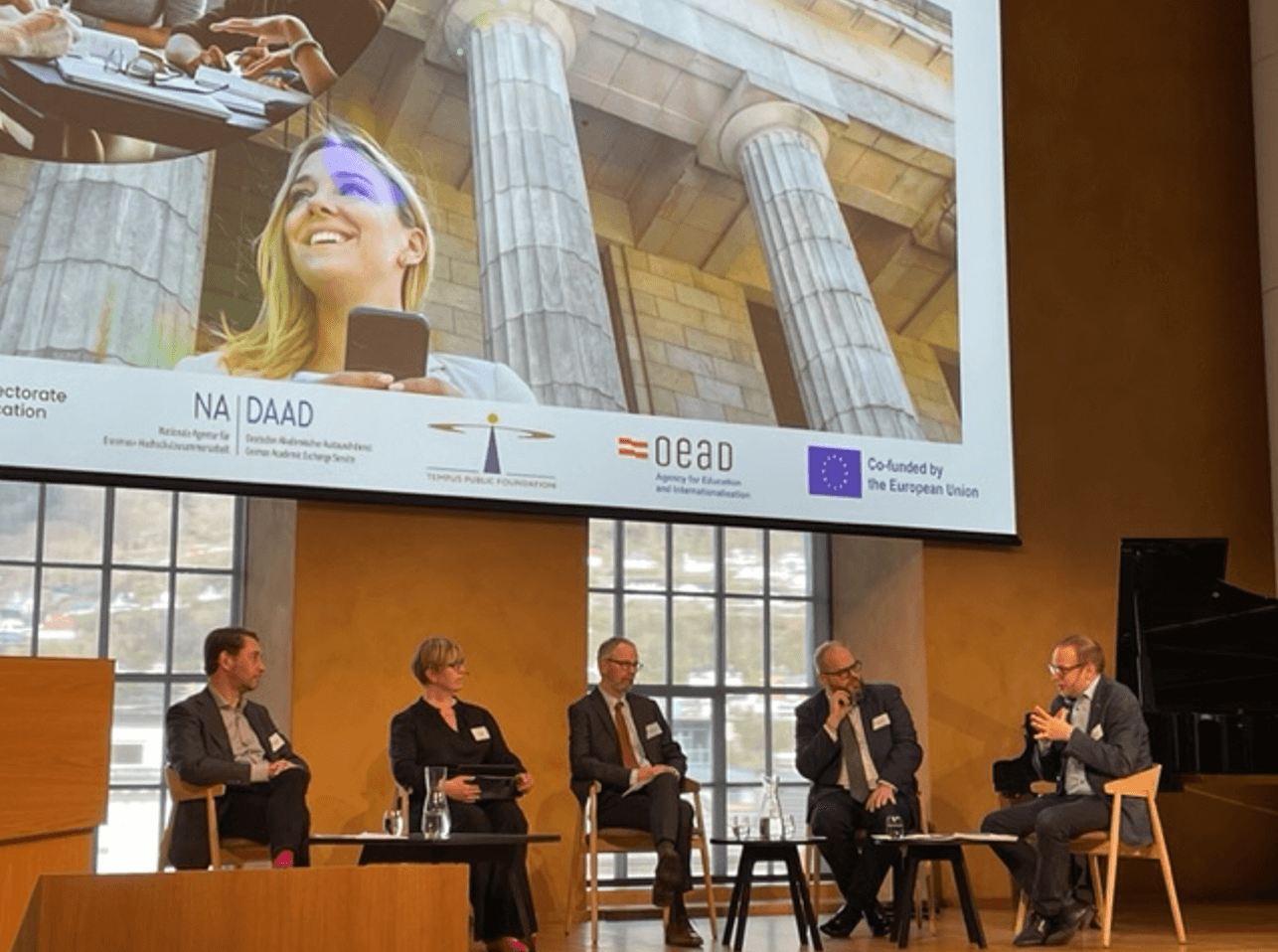Stay in the loop! Subscribe to our mailing list
The European Commission recently published a report analyzing the intermediate progress achieved in 2021-2022 by the 17 European University Alliances funded under the Horizon 2020 Science with and for Society IBA-SwafS-Support-1-2020 call – Support for the Research and Innovation Dimension of European Universities. The call aimed at strengthening strategic R&I partnerships across higher education institutions in Europe and linking the European Research Area (ERA) and European Education Area (EEA), informally known as the research funding leg of European Universities Alliances.
Based on the analysis of the project documentation in the first reporting period (e.g. periodic reports, deliverables, and reviewer assessments), the report addresses the challenges faced by the alliances with cooperation, identifies good practices and tangible progress made in implementing transformational changes, and finally proposes recommendations for the various transformation modules (e.g. common research and innovation agenda, strengthening human capital, sharing research infrastructures or exploring joint university structures, engagement with non-academic actors, citizens and society, mainstreaming of Open Science).
One of the key recommendations of the report is related to sharing best practice and case studies on the identification of common research topics and the creation of common agendas and action plans, as well as other topics, to support mutual learning.
In this context, four ACA members, the Erasmus+ National Agencies in Norway (HK-dir), Austria (OeAD), Germany (DAAD), and Hungary (Tempus Public Foundation) organised the Erasmus+ conference on European University Alliances in Bergen, Norway. The title of the conference was “Spreading innovative results from European University Alliances to other higher education institutions”,. The aim of the conference was twofold, i.e. to support the exchange of good practice among European University Alliances in the education, research, innovation, and social settings as well as to explore the transformative impact of the European University Alliances on higher education in Europe. The event was attended by ca. 140 participants from almost 20 countries, including members of over 40 alliances, representatives of almost 40 other higher education institutions, student representatives, and 10 national agencies for Erasmus+ as well as national and EU policy makers. The programme included four plenary sessions, twelve workshops and several networking events, which fostered many engaging discussions about the transformative footprint of European University Alliances on higher education in Europe.

Photo credit: Ieva Serapinaite (HK-dir)
Looking at the progress achieved by the European Universities Initiative (EUI) more broadly, the European Commission is currently working together with the stakeholders on a monitoring framework and an investment pathway for the EUI, convening two related workshops with higher education stakeholder organisations in the coming months. This monitoring framework is expected to rely on a comprehensive set of quantitative and qualitative indicators to measure the progress of the entire Initiative in different settings.